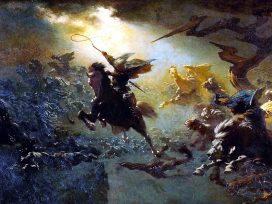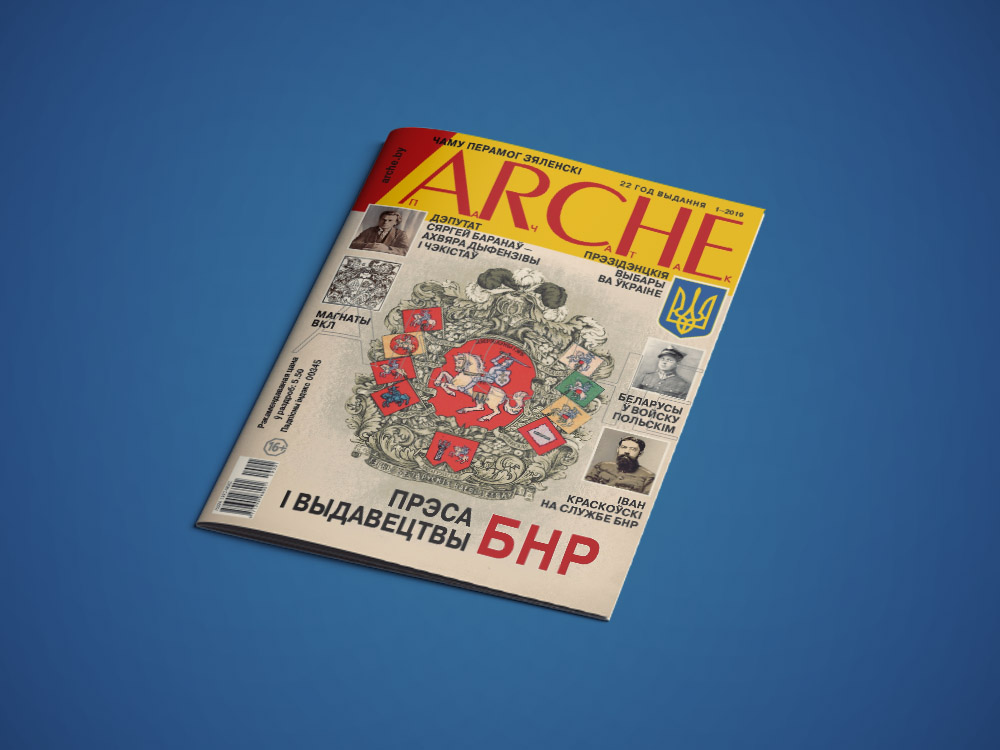
The ongoing repression of Belarusian society now extends to the banning of literary works by Belarusian writers seen as seditious. The reason can only be that they offer the regime its true reflection, writes one of the country’s leading poets.
‘Arche’ (Belarus) gives the coordinates of a new national historiography, discusses the publishing sector in the short-lived Belarusian People’s Republic, and uncovers the roots of the aristocratic Chodkiewicz family, sixteenth-century magnates of the Polish-Lithuanian commonwealth.

Those wanting to emphasise contemporary Belarus’s historical orientation toward the West have two points of reference. One is the Belarusian People’s Republic, which existed for around nine months in 1918. The other is the Grand Duchy of Lithuania, to which the Belarusian cultural space belonged until the end of the eighteenth century. This tendency can be seen in contributions to the new issue of Arche, which plot the coordinates of a new national historiography.
Historians Uladzimir Lyachouski and Andrey Charniakevich study the history of publishing in the People’s Republic. This is, as they say themselves, pioneering work, since this history has ‘until now not emerged as a special topic of research’. They show how a rich publishing sector developed during the period, including official publications, numerous newspapers of various political colours, printing presses, and publishing houses. At the end of the Republic, many of its supporters emigrated to Prague or Kaunas, where they continued publishing. ‘Although their political initiatives were not always successful, the cultural value of their self-sacrificing work in the publishing sector cannot be underestimated, nor can its importance for the national movement.’
Lithuanian historian Gianutse Kirkene traces the roots of the aristocratic Chodkiewicz family, who became magnates of the Polish-Lithuanian commonwealth in the sixteenth century. Family members, who served as warlords, were based in the territories of what today is Hrodna, Navahrudak, Orsha, and the Podlachia region. Kirkene tries to shed light on the prehistory of the family and its founder, Chodko Jurewicz, a nobleman of Ruthenian roots and Orthodox faith who acted as witness to the union between Poland and Lithuania in 1434.
This article is part of the 16/2019 Eurozine review. Click here to subscribe to our reviews, and you also can subscribe to our newsletter and get the bi-weekly updates about latest publications and news on partner journals.
Published 19 September 2019
Original in English
First published by Eurozine
© Eurozine
PDF/PRINTSubscribe to know what’s worth thinking about.

The ongoing repression of Belarusian society now extends to the banning of literary works by Belarusian writers seen as seditious. The reason can only be that they offer the regime its true reflection, writes one of the country’s leading poets.

Three years after the mass anti-regime protests in Belarus, the pro-Russian state continues to brutally repress all expressions of national identity. But people have not forgotten their experiences in 2020 and believe that Belarus’s long history of foreign rule is nearing its end.